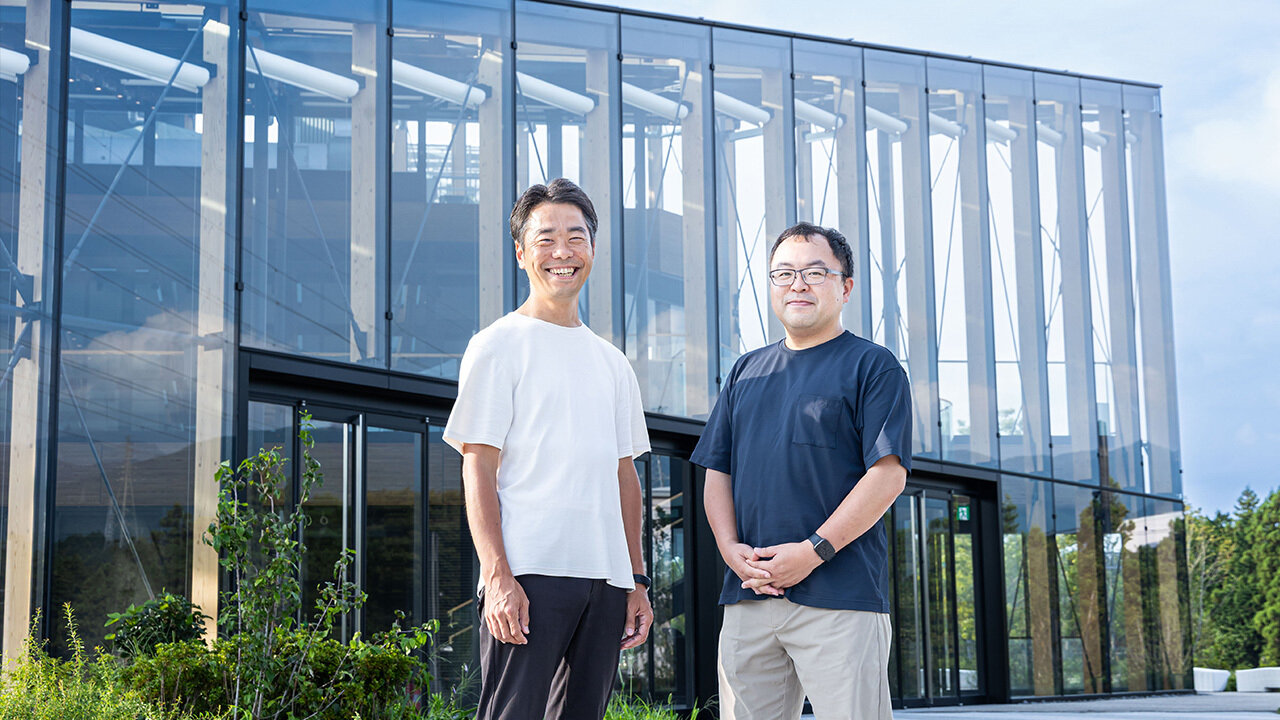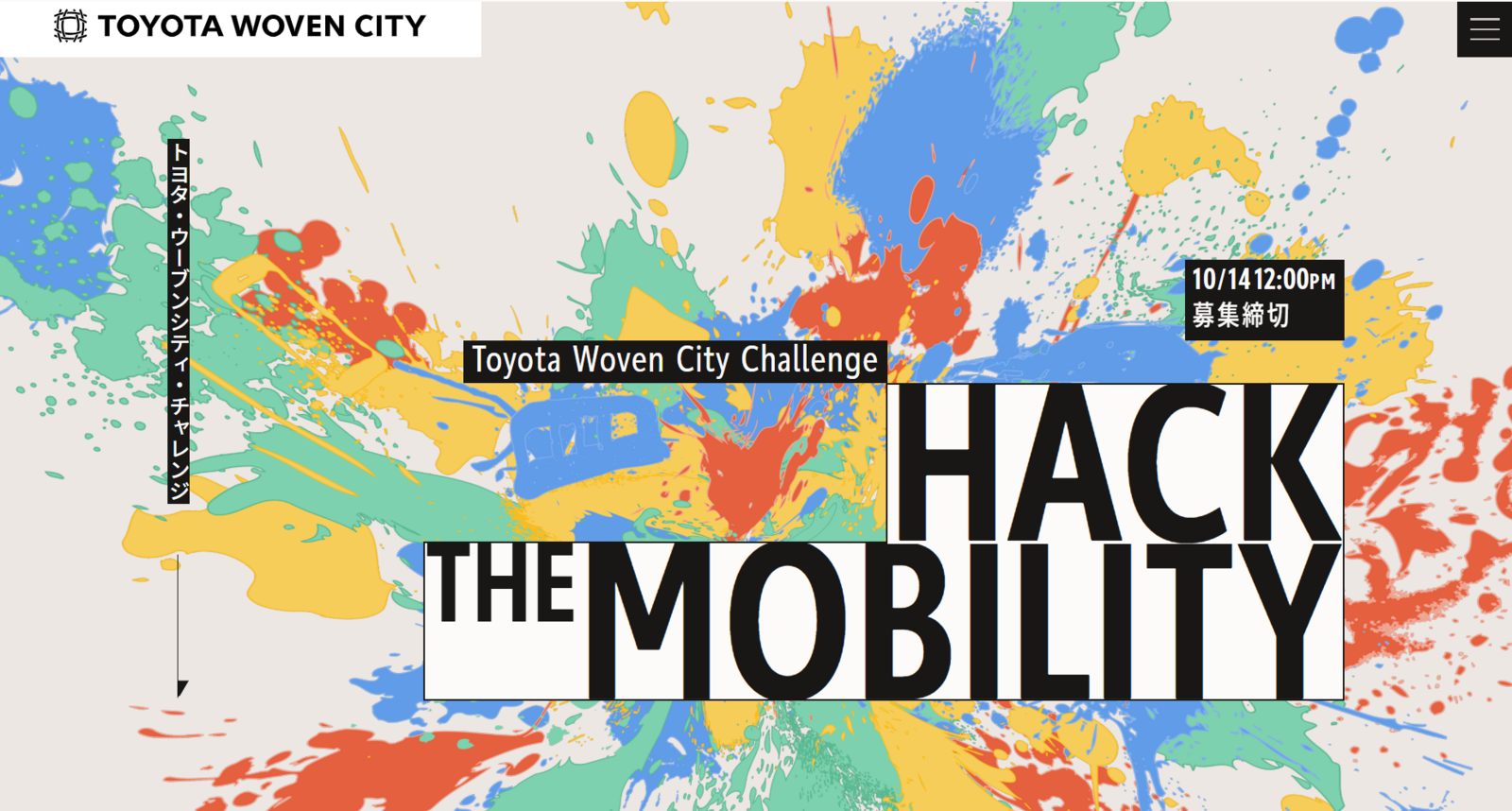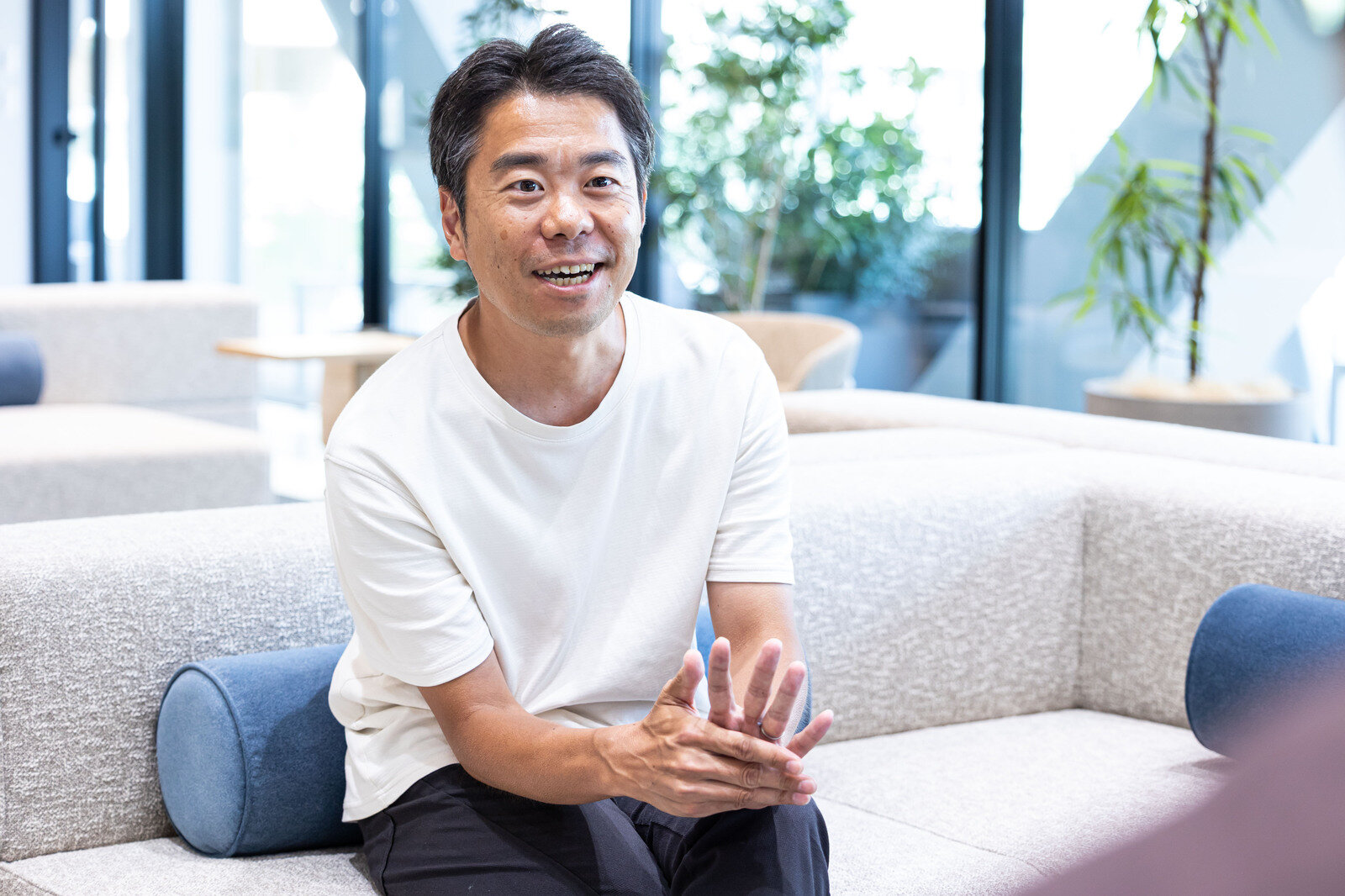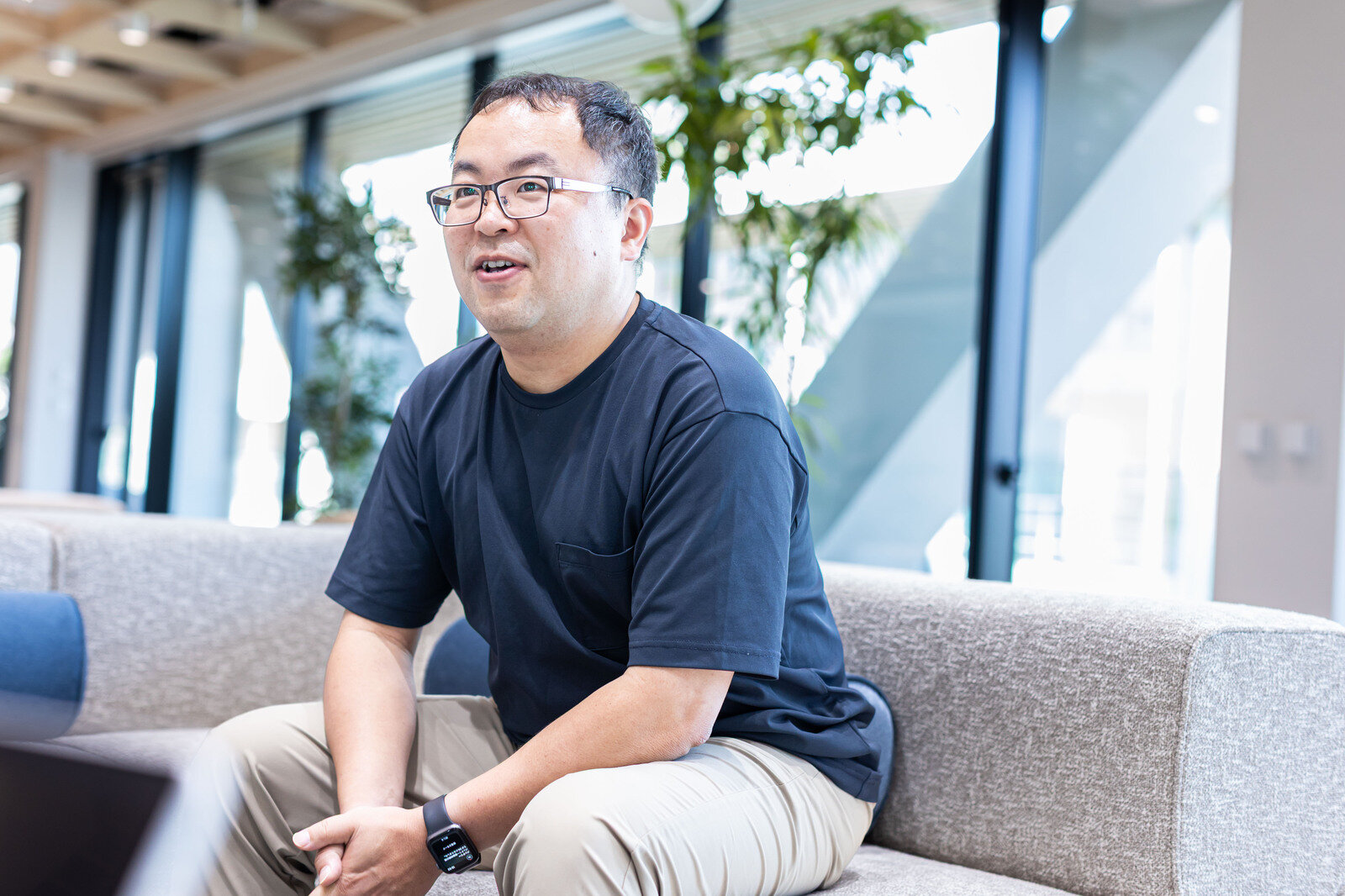
The search is on for partners who can make full use of Toyota's "living laboratory" to create a future no one has yet imagined. A look at the Woven City Challenge.

On August 25, an update on the Woven City website announced that entries had opened for “Toyota Woven City Challenge — Hack the Mobility.”

Clicking through, one finds the following details: “We’re looking for partners who are eager to explore, experiment, and help shape the future with us,” “founded within the past 15 years,” and “free access to Woven City facilities and services.”
In short, Toyota is seeking startups and other inventors who can make full use of the various assets that Woven City has to offer. We spoke with staff behind this initiative.
The benefits of Woven City
As we explained in the first article of this series, in Woven City the companies and individuals who carry out demonstration trials are known as “Inventors.”
The first five Inventors were announced at CES in January. In August, they were joined by others including Interstellar Technologies and Kyoritsu Seiyaku, as well as Toyota, Woven by Toyota (WbyT), and the Toyota Group. As of the first of September, an additional 19 companies have signed on.
Through the Toyota Woven City Challenge, it is seeking to grow the ranks of Inventors with companies, organizations, and individuals who bring more of a startup mindset. Screening will wrap up around next spring. The selected Inventors will then be able to run demonstration trials (spanning up to 18 months), drawing on the information and facilities assembled in Woven City, as well as the expertise of Toyota and WbyT.
Companies and local governments generally organize accelerator programs as part of efforts to support startups. The major difference between such initiatives and the Challenge program is that the selected participants will have access to Woven City.
Woven City Community Manager Daisuke Tanaka, who leads planning for the program, explained the initiative from three perspectives: location, residents, and Toyota.
Tanaka

If you want to run trials in public spaces, you often spend a lot of time coordinating with nearby residents, but in Woven City we can shorten that time.
The fact that we have residents is another big factor. If your testing is detached from real life, in many cases, you can’t tell whether your product will actually be used. Having residents who will use the technologies within their daily lives is a tremendous help.
A third aspect is collaboration with Toyota.
As a startup or a research institute, you need people to use or buy the products and services you create.
In our program, participants can use the assets of Toyota and WbyT, which makes the resulting products and services ripe for collaboration with Toyota.
Even in Woven City, however, trials are not completely unconstrained. Inventors must abide by rules to maintain safety, trust, and quality.
Balancing the needs of startups with safety and security is no simple matter. Yet as Tanaka emphasizes, “It is crucial.”
“Rather than treating it as a hassle for startups, WbyT provides support and advice because we believe they will need the same level of quality upon entering the market. I think the value lies in establishing the standards and priorities that will help them go out into the wider world.”
Teaming up to change the world
The startups of Woven City should “come to us with whatever selfish demands they have,” says Nobuhisa Otsuki, who oversees the Challenge program and manages development, support, and services for Inventors.

As already mentioned, the biggest benefit offered by the program is access to various assets, including the data and facilities concentrated within Woven City, along with vehicles such as the e-Palette.
What's more, Woven City is gearing up for the official launch of Phase 1. In future stages, its functionality as a test course, including such assets, will continue to be enhanced and expanded.
Since no other city-sized test course exists in the world, Otsuki and his team are also still exploring what is necessary and what is important.
To that end, the Inventors’ “selfish demands” will provide valuable points of reference.
The idea is to have them make full use of Woven City’s assets and point out areas for improvement. “I see it as also testing our own capabilities—can we address those needs?” says Otsuki.
As the name suggests, accelerator programs generally aim to speed up or boost a startup’s activities. By contrast, Woven City’s program places greater emphasis on working with startups and tackling problems together.
Otsuki
In general, accelerators are about speeding up the efforts being made by startups.
In our case, we want to team up to change the world together, so it’s not a matter of simply providing funding or a location and saying, “Off you go.”
For us, it’s not just about finishing the program or demonstration trials—we want to find partners who will stick with us for the long haul.
Otsuki notes that startups have “an entirely different culture and sense of time.” Yet his resolve shines through: “We have to work together toward the same goal. For our part, we are committed and ready to engage with future Inventors.”

